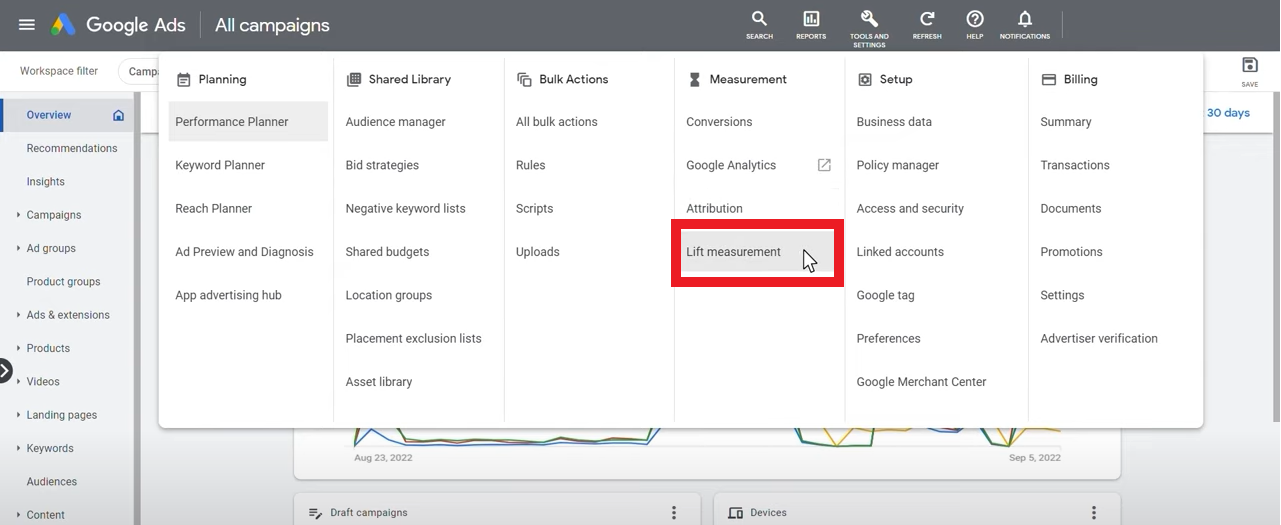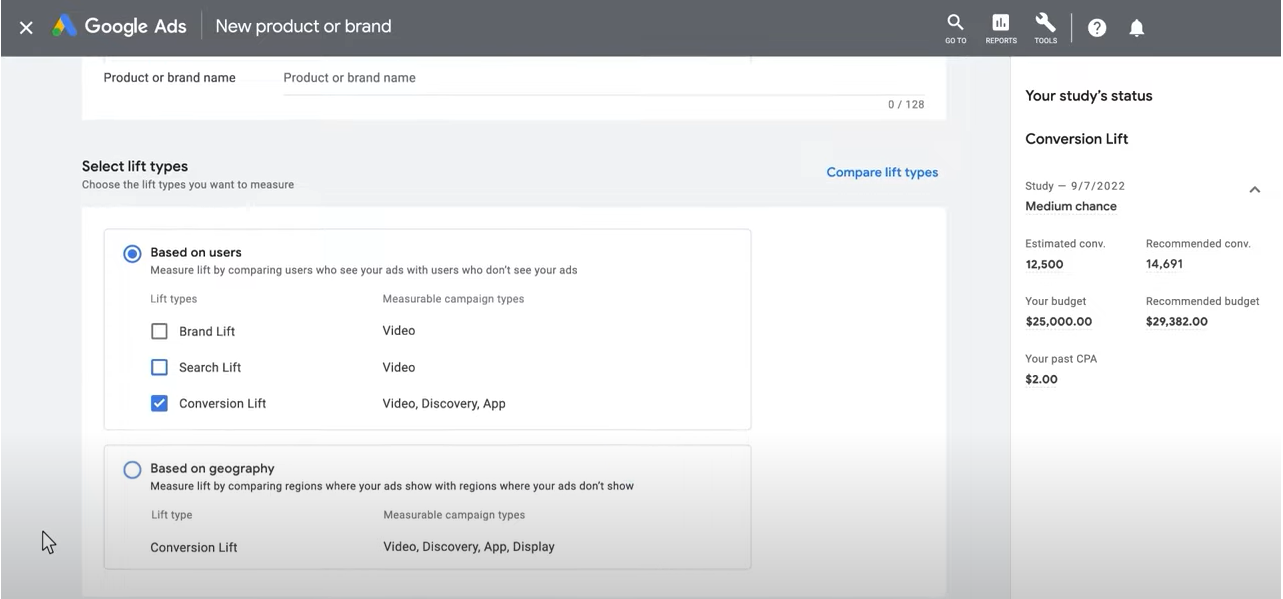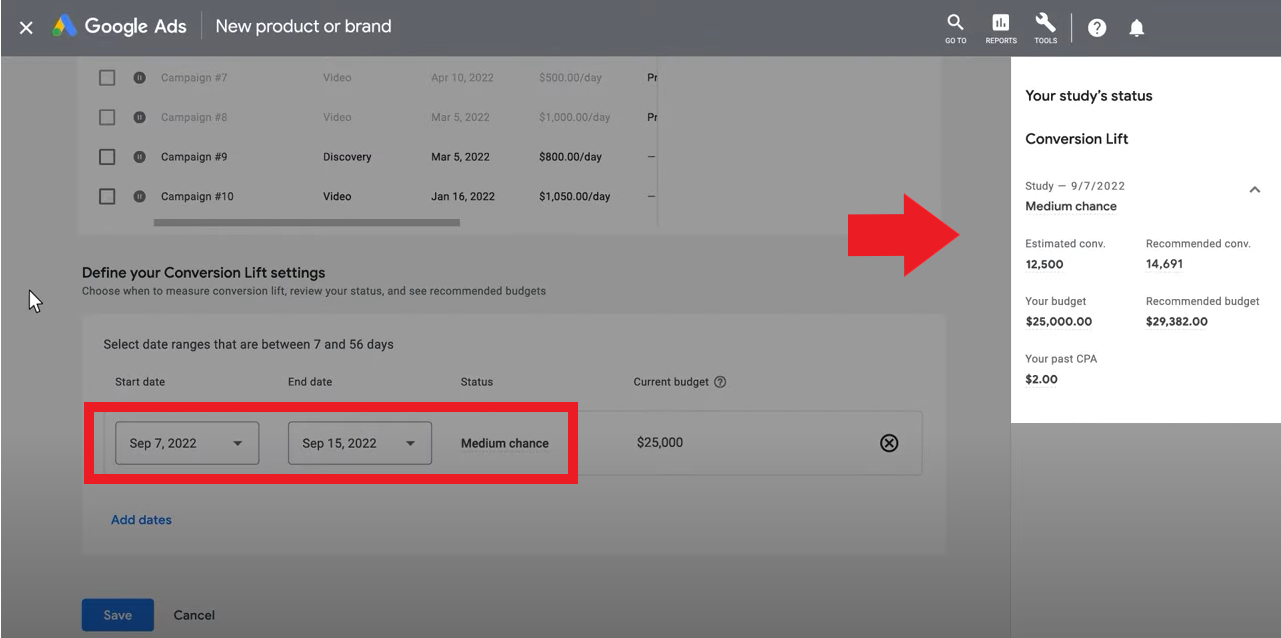In the most recent Google Ads tutorial video, a new Conversion Lift study was introduced to advertisers.
The tutorial covers Conversion Lift and how to set it up in Google Ads.
What Is Conversion Lift & How Does It Work?
Conversion Lift measures how many conversions are caused by your ads that wouldn’t have happened without ads.
Google’s conversion lift solution blends multiple measurement tactics, including:
- Multi-touch attribution
- Incrementality Experiments
- Marketing mix models
Conversion Lift is set up as a controlled experiment within the Google Ads interface that separates your audience into two groups:
- One group that receives ads (control)
- One group that doesn’t receive ads (experiment)
The experiment can separate audiences based on random user selection or based on geography.
Conversion Lift is available for Video, Discovery, and App campaigns.
Why Use Conversion Lift?
In the Google tutorial video, the introduction started out with three major pain points in today’s marketing measurement.
- Customer journeys are more complex. As people interact with ads across multiple platforms, it’s sometimes difficult or impossible to connect the dots to one unique user journey.
- Cookie-based measurement continues to decline. This leaves marketers with less visibility into what’s working (and what’s not).
- Marketers are expected to do more with less. All the while, they’re increasingly scrutinized over the need for profitability.
How To Set Up Conversion Lift
The tutorial video provided step-by-step instructions based on separating by users.
Step 1:
In the Google Ads interface, navigate to the top menu. Click on Tools & Settings >> Measurement >> Lift measurement.
Then, click on “+” to start a new study.

Step 2:
Select if your study will be based on users or by geography:


Next, you’ll be able to select which campaign(s) to run in this study.
After that, select your start and ends dates.
Finally, review the feasibility to estimate how likely your study will get results.
 Image credit: Google Ads Tutorial YouTube video, December 2022
Image credit: Google Ads Tutorial YouTube video, December 2022
Once saved, the conversion lift study will automatically begin measuring lift at your chosen start date.
Conversion Lift Metrics
Google provides three metrics advertisers can measure using this study:
- Incremental conversions
- Incremental conversion value
- Relative conversion lift
You’ll need access from your Google account team to get started, as this has not yet rolled out to all accounts.
Watch the full Conversion Lift tutorial below:
window.addEventListener( ‘load’, function() {
setTimeout(function(){ striggerEvent( ‘load2’ ); }, 2000);
});
window.addEventListener( ‘load2’, function() {
if( sopp != ‘yes’ && addtl_consent != ‘1~’ && !ss_u ){
!function(f,b,e,v,n,t,s)
{if(f.fbq)return;n=f.fbq=function(){n.callMethod?
n.callMethod.apply(n,arguments):n.queue.push(arguments)};
if(!f._fbq)f._fbq=n;n.push=n;n.loaded=!0;n.version=’2.0′;
n.queue=[];t=b.createElement(e);t.async=!0;
t.src=v;s=b.getElementsByTagName(e)[0];
s.parentNode.insertBefore(t,s)}(window,document,’script’,
‘https://connect.facebook.net/en_US/fbevents.js’);
if( typeof sopp !== “undefined” && sopp === ‘yes’ ){
fbq(‘dataProcessingOptions’, [‘LDU’], 1, 1000);
}else{
fbq(‘dataProcessingOptions’, []);
}
fbq(‘init’, ‘1321385257908563’);
fbq(‘track’, ‘PageView’);
fbq(‘trackSingle’, ‘1321385257908563’, ‘ViewContent’, {
content_name: ‘google-ads-conversion-lift-tutorial-for-advertisers’,
content_category: ‘news pay-per-click’
});
}
});
Source
[sibwp_form id=1]


